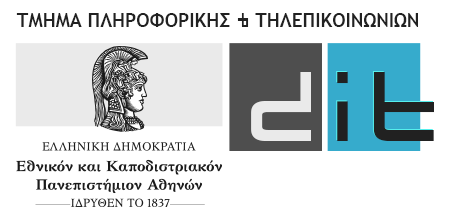MSc Thesis presentation of Mr. Kostas Mparmparousis, Wednesday, October 22, 2025
On Wednesday, October 22, 2025, at 14:00, Mr. Kostas Mparmparousis of the postgraduate program “Data Science and Information Technologies”, track on “Big Data and Artificial Intelligence”, will present his MSc thesis titled: "What Drives Learned Optimizer Performance? A Systematic Evaluation"
Abstract
Classic query optimization is a well-defined and supremely intelligent process, a cornerstone of database management systems, infused with decades of empirical knowledge and ingenuity. As traditional optimizers inevitably begin to pay the toll the (few but impactful) limitations in their design induce in this modern age of data processing, a new breed of Learned Query Optimizers (LQOs) promises to surpass those shortcomings and revolutionize the query execution landscape. Whilst research on this field continues to flourish, a framework that places such systems under a microscope and dissects them becomes the top priority, so that the research community is informed on which factors drive their performance and how to realize their immense potential.
In this thesis, we propose a systematic framework centered around five core evaluation dimensions: performance, robustness, learning procedure, internal decision-making and generalization. Afterwards we leverage said framework in order to contrast the classic optimizer's performance against five of the most prominent LQO implementations. Our findings show that a) in terms of outright performance the LQOs find the largest windows of opportunity in settings where the classic optimizer is destined to fail,
b) regression-based LQOs are extremely sensitive to different workload orders and maximize their effectiveness when exposed to a ascending complexity curriculum, c) how training progress is tracked has an immediate effect on model convergence speed and stability, d) LQO success stems directly from their model's architecture and how its embedding space is structured, and finally e) the classic optimizer is still the go-to solution to almost anything generalization-related.
EXAMINATION COMMITTEE:
Dr. Georgia Koutrika, Research Director, Information Management Systems Institute, Athena Research Center
Prof. Nikos Mamoulis, Department of Computer Science and Engineering, University of Ioannina
Assistant Prof. Vasilis Efthymiou, Department of Informatics and Telematics, Harokopio University of Athens
24 October 2025
14:00 – 15:30 (GTB)
Join Microsoft Teams Meeting
https://teams.microsoft.com/l/meetup-join/19%3ameeting_OWI5NDQzODEtODNmYS00ZTkyLWI2NzktYjE0Y2U2NDRhNzI5%40thread.v2/0?context=%7b%22Tid%22%3a%226ae07702-c5f7-4f38-9b87-acad62a75d93%22%2c%22Oid%22%3a%22a532b5cb-e712-4935-a736-a15e0a5058ef%22%7d
Meeting ID: 314 577 906 602 1
Passcode: 3ae7HZ37
